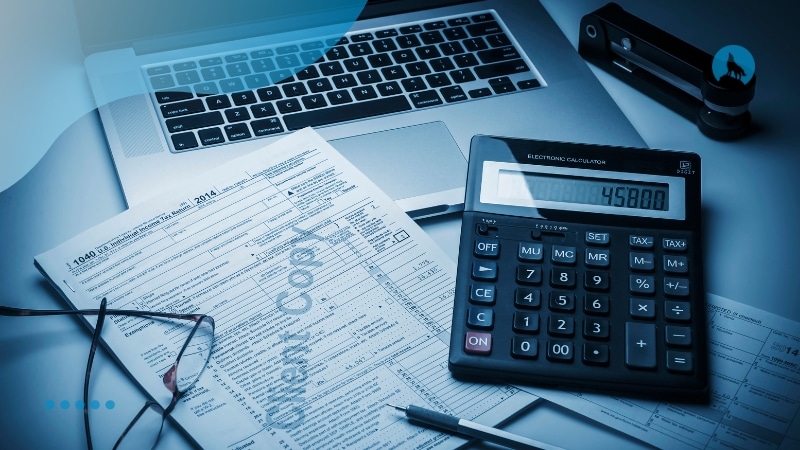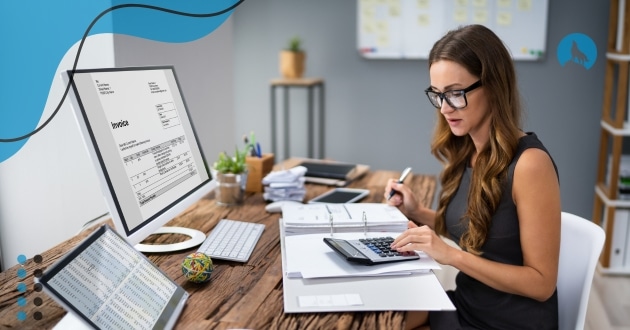Personal tax accountants play a crucial role in managing your financial affairs, particularly when it comes to navigating the complexities of tax laws. For individuals who find tax preparation overwhelming or simply lack the time to manage it themselves, hiring a professional can provide significant relief. By working with personal tax accountants, you can ensure that your tax returns are accurate, timely, and optimized to your financial benefit.
Moreover, personal tax accountants are not just for the wealthy or those with complicated finances. They can be invaluable for anyone looking to maximize deductions, avoid potential audits, and ensure compliance with ever-changing tax regulations. Whether you’re a freelancer, a small business owner, or simply someone who wants to avoid the stress of tax season, these professionals offer services tailored to your specific needs.
Ultimately, the decision to hire personal tax accountants can lead to long-term financial benefits, including better tax planning, reduced tax liability, and peace of mind. As tax laws continue to evolve, having a knowledgeable professional by your side can help you stay ahead and make informed financial decisions that align with your goals.
The Role of Personal Tax Accountants

1. What Do Personal Tax Accountants Do?
Personal tax accountants specialize in preparing and filing tax returns for individuals. They keep up with the latest tax laws and regulations, ensuring that their clients take advantage of all available deductions and credits. Their role includes analyzing your financial situation, advising on tax-saving strategies, and representing you in case of an audit.
2. Why Hire a Personal Tax Accountant?
Hiring a personal tax accountant can save you time and reduce stress during tax season. These professionals are experts in handling complex tax situations, such as investments, real estate transactions, or owning a small business. By leveraging their expertise, you can avoid common tax pitfalls and potentially save money by minimizing your tax liability.
Choosing the Right Personal Tax Accountant
1. Qualifications to Look For
When selecting a personal tax accountant, it’s important to check their qualifications. Look for professionals who are Certified Public Accountants (CPAs) or Enrolled Agents (EAs), as these credentials indicate a high level of expertise in tax matters. Additionally, consider their experience in dealing with tax situations similar to yours.
2. Questions to Ask Before Hiring
Before hiring a personal tax accountant, ask about their experience, fees, and approach to tax planning. Inquire about how they stay updated on tax laws and how they handle communication with clients. Understanding their process and how they can tailor their services to your needs will help you make an informed decision.
The Benefits of Year-Round Tax Planning
1. Proactive Tax Strategy
Working with a personal tax accountant year-round allows for proactive tax planning. Instead of just meeting during tax season, regular consultations can help you make informed financial decisions throughout the year. This approach can lead to better tax outcomes and help you avoid surprises when it’s time to file.
2. Maximizing Deductions and Credits
Personal tax accountants can help you identify and maximize deductions and credits that you might otherwise overlook. From charitable contributions to education expenses, they ensure that you are taking full advantage of every opportunity to reduce your tax bill.
Common Misconceptions About Personal Tax Accountants
1. Only for the Wealthy
A common misconception is that personal tax accountants are only for the wealthy. In reality, anyone can benefit from their services, especially those with complex tax situations or limited time to manage their taxes. Their expertise can lead to savings that far outweigh their fees.
2. DIY vs. Professional Help
While tax software can be useful, it doesn’t replace the personalized advice and expertise of a personal tax accountant. Professionals can provide tailored advice, help you navigate complicated tax situations, and offer peace of mind that your taxes are done correctly.
Finding Professional Tax Help When You Need It
If managing your taxes feels overwhelming, seeking professional assistance can make all the difference. Companies like Jackson Hewitt offer expert tax services to ensure that your returns are accurate and optimized for maximum savings. Whether you need help with basic tax filing or have a more complex financial situation, their experienced tax professionals can provide the guidance and support you need to navigate tax season with confidence.
How Personal Tax Accountants Help During an Audit
1. Representation and Support
In the event of an audit, having a personal tax accountant on your side is invaluable. They can represent you before the IRS, handle all communications, and provide documentation to support your tax return. This support can significantly reduce the stress and uncertainty of an audit.
2. Preventing Future Issues
Personal tax accountants can also help you understand why you were audited and how to avoid similar issues in the future. By reviewing your financial practices and tax filings, they can offer advice on how to stay compliant with tax laws and minimize the risk of future audits.
Continuing Education with Accredited Online Finance Degrees
For those looking to advance their careers in finance, pursuing finance degrees online accredited is an excellent option. These programs offer the flexibility to study from anywhere while ensuring that your degree is recognized by employers and educational institutions alike. Whether you’re just starting out in the finance field or seeking to deepen your expertise, an accredited online finance degree can provide the knowledge and credentials needed to succeed.
FAQ: Personal Tax Accountants
1. What does a personal tax accountant do?
A personal tax accountant helps individuals prepare and file their tax returns, ensuring compliance with tax laws, maximizing deductions, and providing strategic tax planning advice.
2. Do I really need a personal tax accountant?
If your financial situation is complex, or if you simply want to ensure your taxes are done correctly, a personal tax accountant can save you time, reduce stress, and potentially lower your tax bill.
3. How much does it cost to hire a personal tax accountant?
The cost varies depending on the complexity of your tax situation and the accountant’s experience. Fees can range from a few hundred to several thousand dollars, but the potential savings and peace of mind can outweigh the cost.
4. What qualifications should I look for in a personal tax accountant?
Look for a Certified Public Accountant (CPA) or an Enrolled Agent (EA) with experience in personal tax preparation. It’s also important to check their reputation and client reviews.
5. How can a personal tax accountant help me save money?
A personal tax accountant can identify deductions and credits you may not be aware of, advise on tax-efficient financial strategies, and help you avoid costly mistakes on your tax return.
Conclusion
Personal tax accountants are essential partners in managing your financial health, especially when it comes to taxes. Their expertise in navigating tax laws, maximizing deductions, and providing year-round advice can lead to significant financial benefits. Whether you have a straightforward tax return or a complex financial situation, hiring a personal tax accountant can save you time, reduce stress, and ensure that your taxes are handled professionally and accurately.



